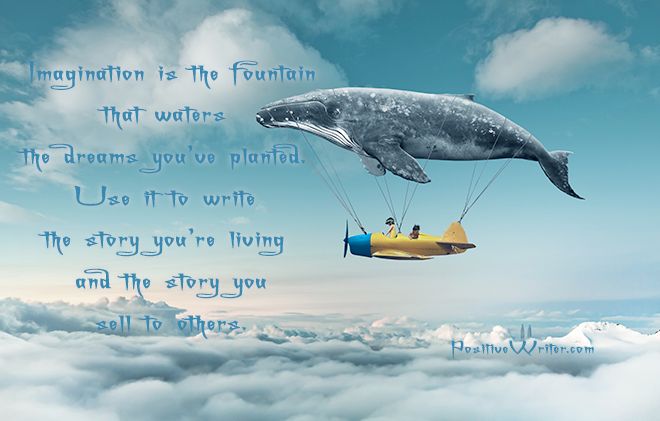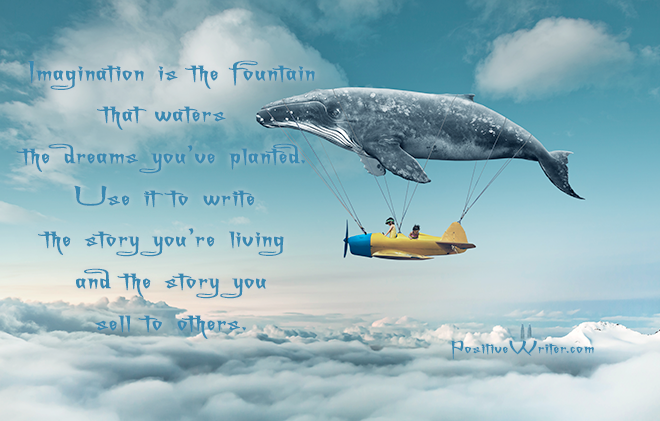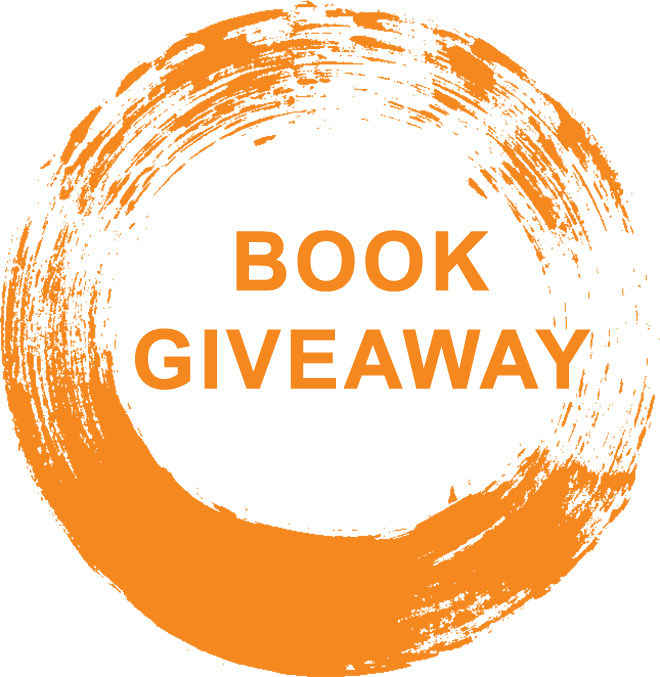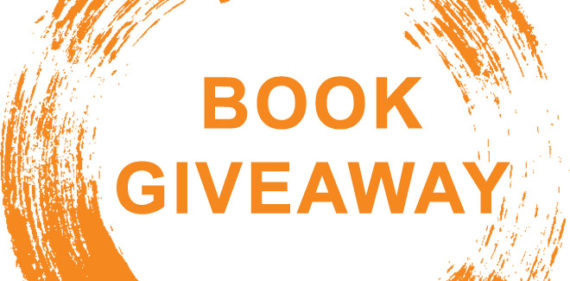Imagination comes naturally to kids.

When you’re young, life is a blank slate to fill. So we fill it with heroic stories. We act them out with our friends. And we dream big dreams of what life will be like when we grow up.
Then we get older and pretending turns to jealousy.
“If I was like him, I’d be unstoppable.”
“If I had more money, I’d be happier.”
“If life was fair, I’d have everything I wanted.”
Well, you’re not him.
You can earn more money.
And life will never be fair.
The problem with imagination
When I was a kid, I always imagined I was someone else.
We do that because we don’t think we’re enough on our own. We need help. We need a superpower. We need something to make us more attractive than we are without that little something extra.
I was 23 years old before this truth hit me in the chest.
Zig Ziglar taught that if you’re not using what you have now, you wouldn’t use what you had if you were someone else. It’s not the power or the skill that matters. It’s what you do with it that counts.
I wasn’t a natural at basketball. I had to throw a lot of balls at the net before one went in. And I had to throw even more to hit the basket more than once a day.
It all began when I saw myself hitting the net—in my imagination. Like the Little Engine That Could, I thought I was able, so I did.
How would my life have been different if I had imagined myself as the superhero? What could I have accomplished if I acted as if I had the traits I wanted?
I can’t say for sure, but I know this: I’d have had more courage, more confidence, and a stronger imagination.
What does this have to do with writing?
We all know creative writers use their imaginations regularly.
But what about nonfiction writers?
And what if imagination didn’t have to stop with the stories we tell?
Imagination is the fountain that waters the dreams you’ve planted. Use it to write the story you’re living and the story you sell to others.
Why is this important?
Imagination is full of pictures. Vivid imagination has sounds, tastes, and feelings to go with it—but without pictures, it’s empty.
What do we use when we teach kids to read? Pictures. Lots of them. On every single page.
When you see it, you believe it.
No matter what you write, paint pictures. Facts without stories are dull. Data without connection is meaningless. Circumstances without a narrative are forgettable.
If you want to learn how to win people to your way of thinking, listen to a storyteller. Watch a TV program. Study that commercial that led you to buy that course, that car, or even that brand of toothpaste. What picture did they paint? What pictures did they draw in your imagination?
Learn that and you’ll have a power that amazes you and your readers.
Start painting word pictures now
Word pictures are easier to paint than you think.
Here are some we use regularly in conversation:
- Metaphors
- Analogies
- Anecdotes
- Jokes
- Comparisons
- Allegories
- Hypotheticals
Most of the time we do this when we’re trying to make something complex easy to understand. We want the light to come on for our audience so they can say, “Oh, now that makes sense.” We do that by comparing the unfamiliar with something we know like the back of our hands.
Once they see, they can agree.
Then they can decide to act on what they know.
Want to add power to this technique? Decide before you write a word what you want your reader to feel when she reads them. Do that, and the words will flow out of you like water flows down the side of a mountain.
I’ll leave you with an exercise to try next time you write. If you’re tempted to tell your reader what you want them to know, show them instead. Just describe what you see so your reader can see it, too. Bonus points if you can evoke emotion with your picture.
Telling is as boring as listing your points on a PowerPoint slide. Would you tell people about your wedding without showing them pictures?
Imagination is a powerful thing. Use yours for good, and you’ll be an unforgettable writer.



